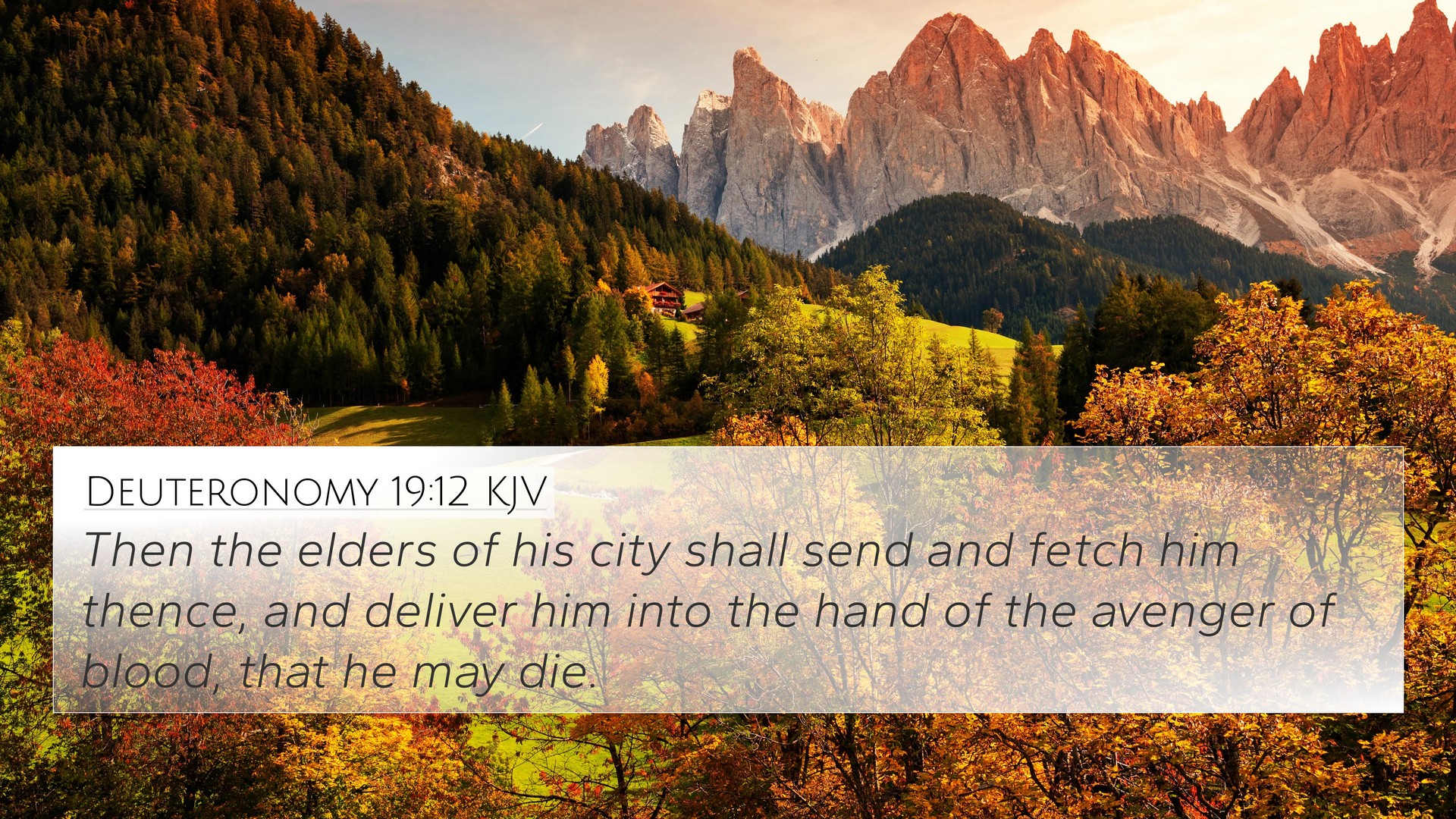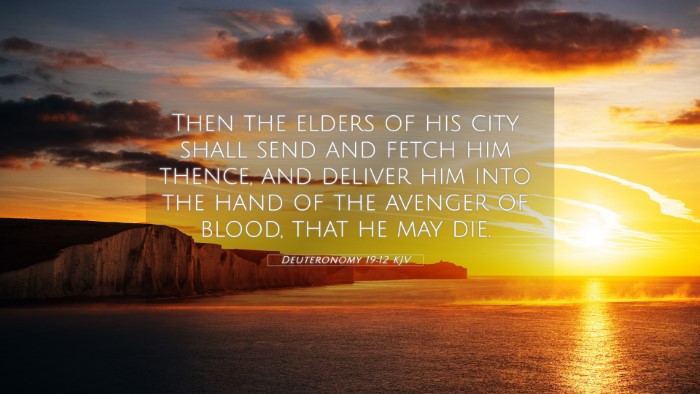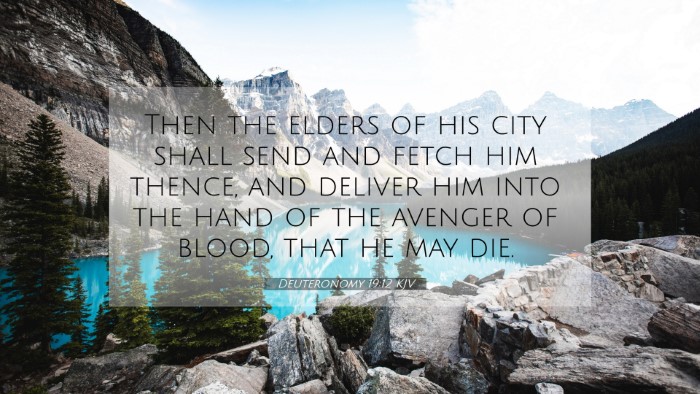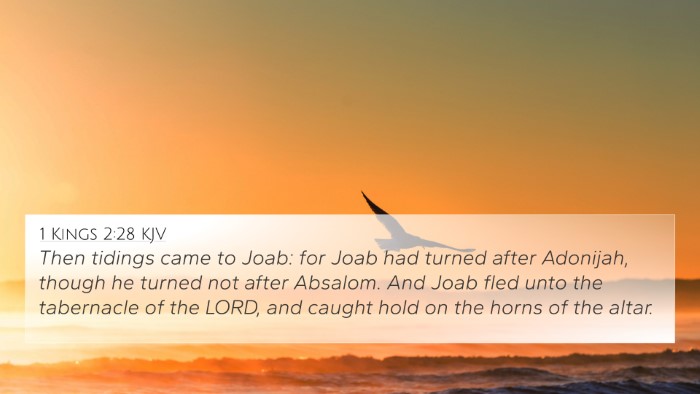Understanding Deuteronomy 19:12
Deuteronomy 19:12 states: "Then the elders of his city shall send and fetch him thence, and deliver him into the hand of the avenger of blood, that he may die."
Summarized Meaning and Interpretation
This verse deals with the judicial system within ancient Israel, specifically regarding the laws concerning accidental murder and the responsibilities of the elders of a city. The provision highlighted here indicates the importance of maintaining justice and ensuring that the avenger of blood receives his due in an orderly and lawful manner. The spiritual and social implications of this law reflect the broader themes of justice, mercy, and the sanctity of life as elaborated upon in various public domain commentaries.
Insights from Commentaries
- Matthew Henry: Henry emphasizes that the elders play a protective role in serving justice. Rather than acting out of personal vengeance, they must follow due process, reflecting God's desire for order in societal matters.
- Albert Barnes: Barnes notes that this provision reflects a balance between justice for the victim's family and mercy towards the man who caused the death, which must be carefully considered within the context of the law.
- Adam Clarke: Clarke adds that this law protects those accused of unintentional homicide by ensuring they can safely live in a city of refuge until the judgment is rendered, highlighting God's provision for lowliness and safety amidst conflict.
Related Bible Verse Cross-References
Understanding Deuteronomy 19:12 can be enriched through various connections with other scriptures. Here are some key references:
- Numbers 35:19: This verse discusses the role of the avenger of blood, mirroring Deuteronomy’s laws on just vengeance.
- Exodus 21:12-13: These verses outline the laws regarding manslaughter and the city of refuge, creating a framework for justice.
- Joshua 20:5: It details the process of a manslayer fleeing to a city of refuge—signifying God's provision for safety.
- 2 Samuel 14:6: Here, we see an illustration of the complexities of justice in the context of family and community relations.
- Psalms 55:23: Reflects themes of divine justice and the consequences of iniquity, connecting with the overarching theme of life and justice in Deuteronomy.
- Matthew 5:21-22: Jesus expands on the principles of justice and murder, reinforcing the need for righteous living and moral responsibility.
- Romans 12:19: This New Testament verse reminds us that vengeance belongs to God, aligning with the justice principle in Deuteronomy.
Thematic Connections
The themes found in Deuteronomy 19:12 resonate throughout the Bible, creating rich paths for exploration. Here are some thematic connections:
- Justice: The demand for fair treatment aligns with numerous biblical laws emphasizing justice and equity (Micah 6:8).
- Restitution: Concepts of reparative justice echo through both the Old and New Testaments (Luke 19:8).
- Community Responsibility: The requirement for the city elders to act places community at the heart of justice (Galatians 6:2).
Conclusion
Deuteronomy 19:12 serves as a critical anchor point for understanding God’s intention for justice among His people. By combining insights from various commentaries and drawing connections with related scriptures, we can gain a deeper awareness of the sacred law and its implications.
Utilizing tools for Bible cross-referencing, such as concordances and study guides, facilitates a more profound understanding of how verses relate to one another. For those interested in exploring cross-referencing Bible study methods and identifying connections between the Old and New Testaments, this verse offers a valuable starting point.




